Arthur Sinodinos: Australia’s man in Washington has much to tell
As Arthur Sinodinos prepares to finish his ambassadorial term, he’s ready to tell all about his dealings with presidents, prime ministers, ‘black swan’ events and the myth of American decline.
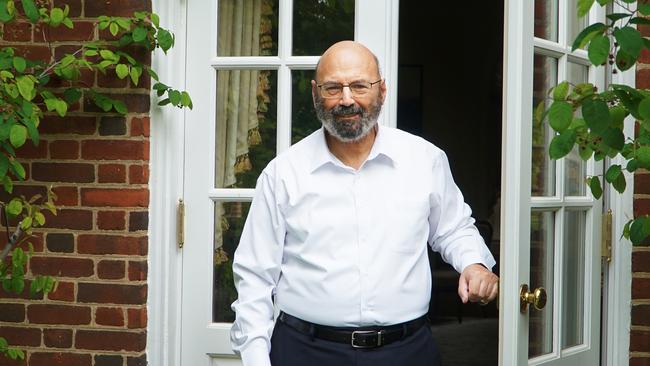
When Arthur Sinodinos started his term as ambassador to the US in February 2020, it was the final year of Donald Trump’s presidency. Trump had been erratic and irrational, trashed alliances and shattered the norms of politics. And soon there was a pandemic, a worldwide recession, race riots, a contested presidential election and Russia’s invasion of Ukraine.
There have also been changes of government in the US and Australia, the negotiation of the AUKUS agreement with the US and UK to acquire nuclear-powered submarines, the elevation of the Quad leaders meeting with the US, India and Japan, and a reopening of dialogue with an assertive China in the Asia-Pacific.
As Sinodinos prepares to finish his term in mid-March, he spoke at length to Inquirer about his time in the ambassadorial post, dealing with presidents, prime ministers and foreign ministers, Australia-US relations, geostrategic challenges in Europe and the Asia-Pacific, the next presidential election, and reflected on his time in politics before diplomatic service.
“I leave this job more optimistic about the US and the future than I did when I came and I think the relationship between the two countries, for a number of reasons, has stepped up hugely and is on an upward trajectory,” Sinodinos says.
“I don’t buy the narrative of American decline or of American democracy being in terminal crisis. What I’ve found is that this is an incredibly dynamic place. They take the constitution seriously – I saw the impact it had in protecting the country through the (2020) election and beyond. It’s a cliche, but I’d never count America out.”
Sinodinos, 65, found Australia well regarded by US policymakers and politicians, and respected for having fought for the maintenance of the global rules-based order alongside the US since World War I. There are some common values and interests, and admiration for Australia standing up to economic coercion and foreign interference.
“They see (Australia) as a model of a country standing up for its national interest,” Sinodinos explains.
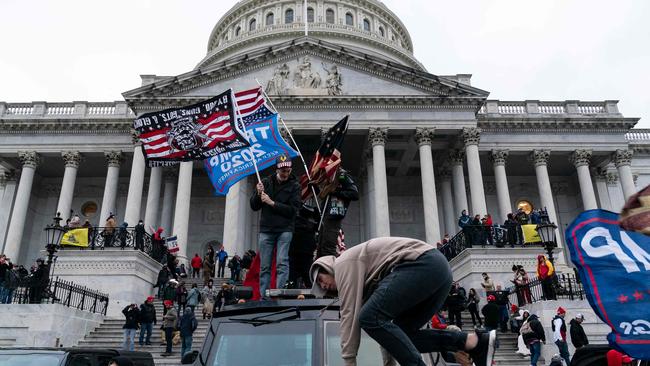
“Our standing is as high (in Washington) as it has ever been. I hazard to say I think it’s actually the highest it has ever been and I think that is because we are standing up for things we believe in, and they (Americans) admire that.”
After arriving in Washington DC, Sinodinos presented his credentials to Trump at the White House. He found the former president viewed Australia positively and liked Australians, and this augured well for the relationship. But Sinodinos is critical of Trump’s abrogation of US global leadership.
“I found (Trump) animated, engaged, very interested in Australia,” he says. “We got treated relatively well in a number of ways. But the problem was that if other allies and partners were not being treated well, the result of that was to weaken the alliance and partnerships as a whole.”
One of the many “black swan” events during Sinodinos’s ambassadorship was Trump’s incitement of the Capitol riot in an attempt to overturn the 2020 presidential election. Sinodinos watched in horror from his residence, White Oaks, as the Capitol was ransacked but the certification of the election result reassured him about the resilience of US democracy.
“I was shocked, surprised and saddened,” he recalls. “That the vice-president (Mike Pence) held a line was very important. The fact that they then decided they would continue with the vote count and get it finished that night sent an important signal, not just to the US, but to the world. In the end, sanity prevailed and the election results were validated.”
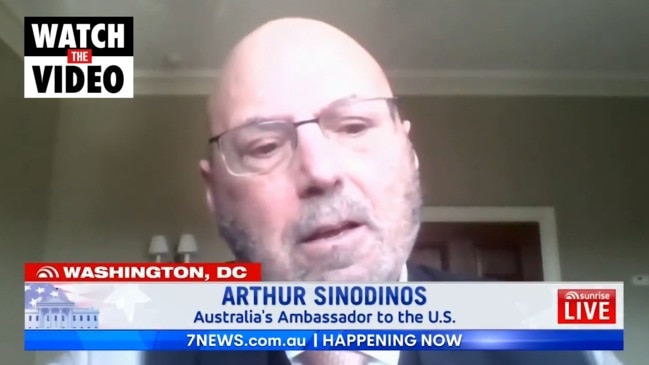
His first encounter with Joe Biden was when he visited Australia in July 2016, as vice-president, and Sinodinos was then cabinet secretary. He has met the president several times at meetings with Scott Morrison and Anthony Albanese. And he has found the Biden White House more process-driven, methodical and traditional than its predecessor.
“One of the things that was a massive difference when the Biden administration came in is the way they immediately focused on shoring up alliances and partnerships,” Sinodinos says.
“And the way he has led the West in response to the Russian invasion of Ukraine shows the benefits of having a leader in charge who had that capacity.”
Russian President Vladimir Putin thought the West was fragmented and the US had walked away from its global leadership role, but he underestimated Biden.
“The invasion was a moment of great moral clarity for the West because it really dramatised the stakes,” Sinodinos says.
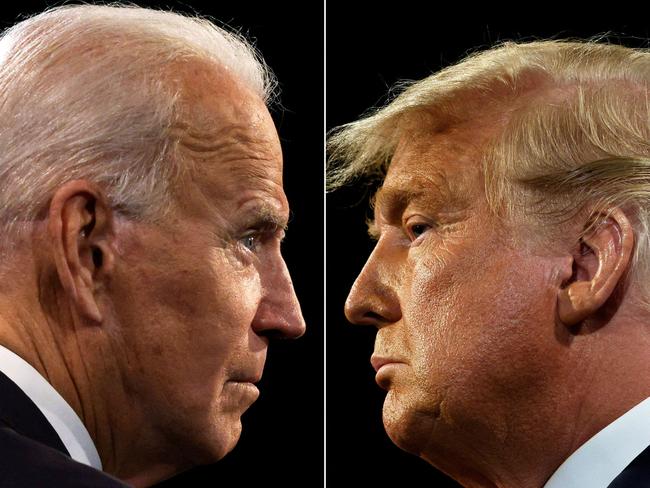
“Where does the global rules-based order go after this? What is the precedent that is being set for other conflicts, other situations? So, it was vital that the West respond. It took American leadership to bring people together and it was a great reminder that bad things happen when America is not engaged in the world. America has to be engaged in the world. It has to be the prime upholder of the global rules-based order.”
That rules-based order, Sinodinos says, also applies to China in the Asia-Pacific region. He downplays talk of looming conflict, perhaps over Taiwan. He welcomes the lowered temperature in Australia-China relations and the dialling down of the rhetoric, and he encourages further dialogue.
“As China grows, it will become a more and more important part of the international system,” he says.
“We all have an interest in a strong and prosperous China. That’s not what this is about. This is about how China grows and adapts to the global rules-based order – not to be a permanent No.2 to the US but in order that we can have a world where all countries, big and small, abide by a common set of rules.”
The AUKUS partnership is not just “a capability pact” in response to changing geostrategic circumstances, Sinodinos emphasises, but a deeper relationship that will see co-operation extended to further areas over time.
“What’s foremost about AUKUS is developing those habits of co-operation between those countries,” Sinodinos says.
“It’s about how industrial bases work together. It’s about how interoperable (and) interchangeable our armed forces can be with each other. The extent to which we share information, the extent to which we share science and technology.”
Sinodinos is confident Australia will acquire at least eight nuclear-powered submarines by 2040, and the model chosen will reflect the “trilateral co-operation” as AUKUS always intended.
Albanese will sign off on the AUKUS agreement in the US next month. The ambassador insists this will not represent a dangerous ceding of sovereignty to the US or UK.
“Failure is not an option,” he says. “What we have said to the Americans and to the British is that, for us, this is a moonshot, right? In other words, it’s a whole-of-government, whole-of-nation effort to bring together all the resources we need to get this done.
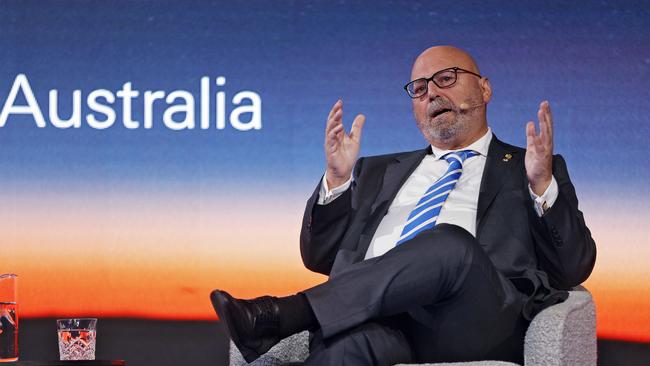
“We’ve got the Americans to sign off on giving us access to the crown jewels of their nuclear technology. And they’re prepared to trust us based on verification – trust but verify – on our capacity for nuclear stewardship. So, it’s a very big effort we’ve embarked on. It will test us as a nation.
“If we become more capable at doing things in Australia, even if it involves overseas technology, that is an increase in our sovereign capability in itself, and it means we are a more capable member of the alliance.
“So, you can split hairs over what is sovereign and not sovereign, but the reality is the Americans are giving up part of their sovereignty, their nuclear technology, they’re sharing it with us, and we are using that to build a capability in Australia which will be an addition to our capacity to project power in the region on behalf of our alliances and partnerships.”
Biden is now 80 and conservative critics say he is showing signs of mental and physical degeneration. Sinodinos, who has met Biden and sat in on meetings he has chaired, sees zero evidence for such diagnoses. “He’s not suffering cognitive decline,” Sinodinos judges. “He stays on top of his game. Often, he’s the last to leave functions because he likes talking to people. I’ve been quite impressed with him.”
Ambassadors always share political assessments with ministers. He talks to prime ministers and ministers as required, often communicates via text message, and has the respect and admiration of both major parties. Ahead of the 2020 presidential election, Sinodinos briefed the National Security Committee that he expected Biden to defeat Trump. He anticipates Biden will run for re-election and does not rule out Trump winning the Republican nomination. So, who will win a Trump-Biden rematch? “I think the President would win again,” Sinodinos predicts.
Working in Treasury, as a political adviser, chief of staff to John Howard (1997-2006) and Liberal Party official before becoming a senator and minister was a useful grounding for diplomacy. “You do public servant-type work, you write cables, you do policy,” he explains. “You are (also) like a politician: cutting ribbons, speaking at things, and you are a salesman for your country.”
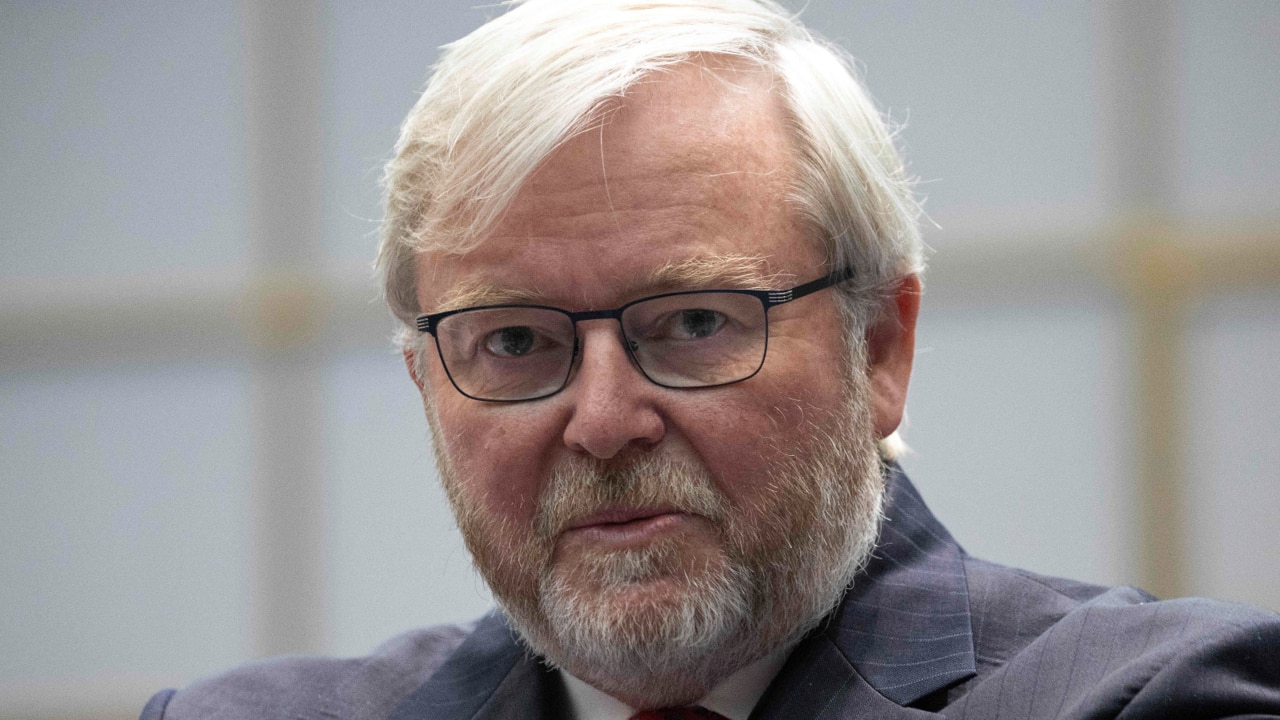
Sinodinos learnt three key lessons from Howard. First, “consistency in what you are about and what your message is”. Second, “treating colleagues well” and ensuring “all shades of opinion” are heard. Third, “an active approach to life” with “discipline” and “regular habits”. Sinodinos adds: “He was comfortable in all elements in the job (and) the ultimate professional”. (Howard offered Sinodinos the US ambassadorship in 2005 but he felt he was too young at that time.)
He was also able to observe three other Liberal prime ministers – Tony Abbott, Malcolm Turnbull and Morrison – up close as a senator (2011-2019) and served as a minister or ambassador under each.
“I’ve always admired Abbott for his consistency but I didn’t always agree with the policy outcomes. When Malcolm wanted to have a go at the leadership, I supported that because I thought we could take a different approach to a number of issues including climate, more focus on technology and innovation. I also thought there might be a more inclusive approach.
“Morrison described himself as a bulldozer but I always found in dealing with him that if you stood your ground and made your point, that it registered. I found working with him relatively straightforward. I knew where he was coming from. And so, from my perspective, the relationship worked quite well.”
Sinodinos is still deciding whether to remain in the US for a bit longer or return to Australia. It is five years since he had a bone-marrow transplant following a cancer diagnosis, and his health is good. He plans to remain engaged, in some way, in public life.
“I continue to be interested in politics,” Sinodinos says. “What politicians do is important and even though it gets pretty scrappy – and it is pretty scrappy here in the US – it is still a noble calling and I still admire people who are prepared to put their hand up.”



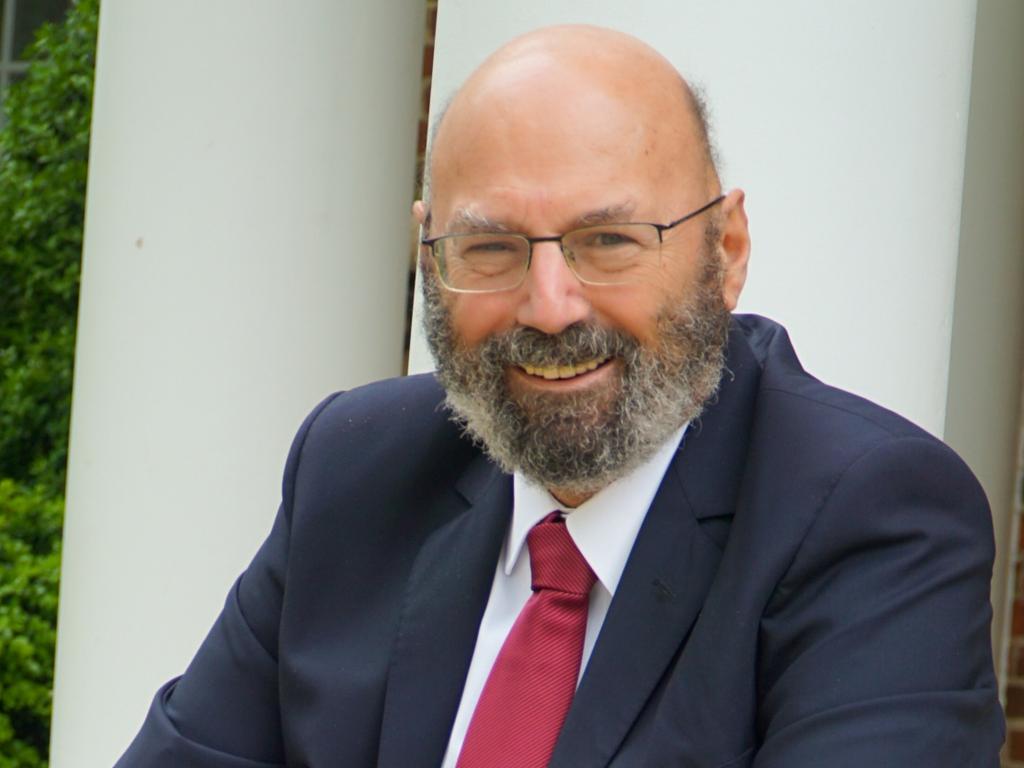
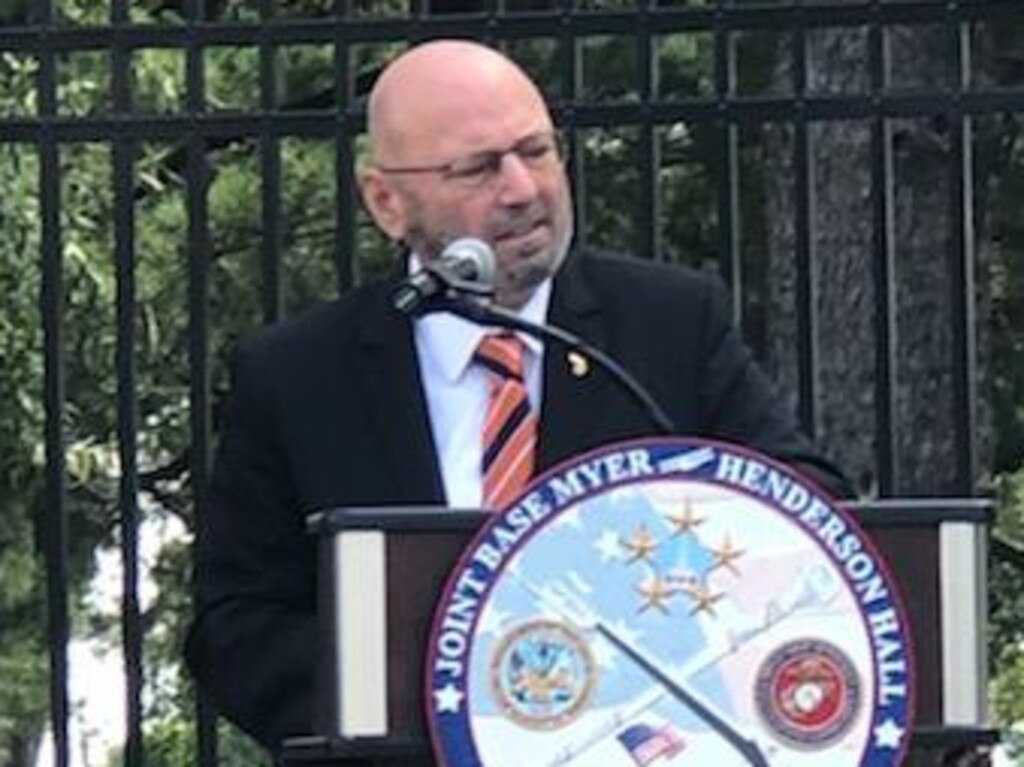
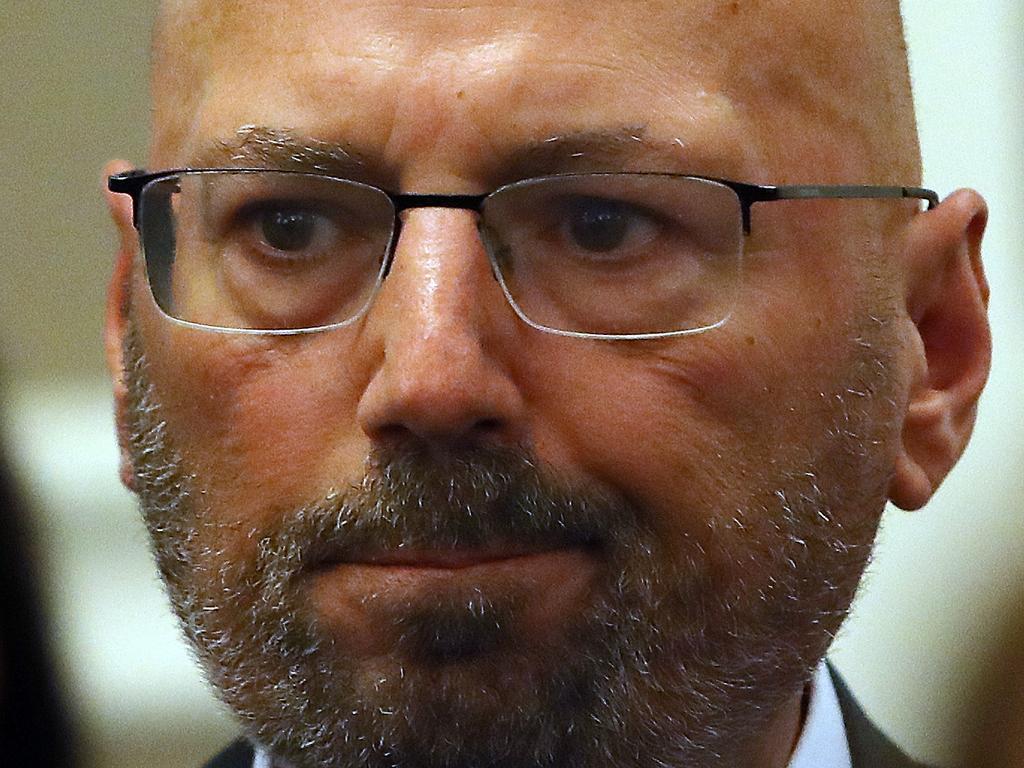
To join the conversation, please log in. Don't have an account? Register
Join the conversation, you are commenting as Logout